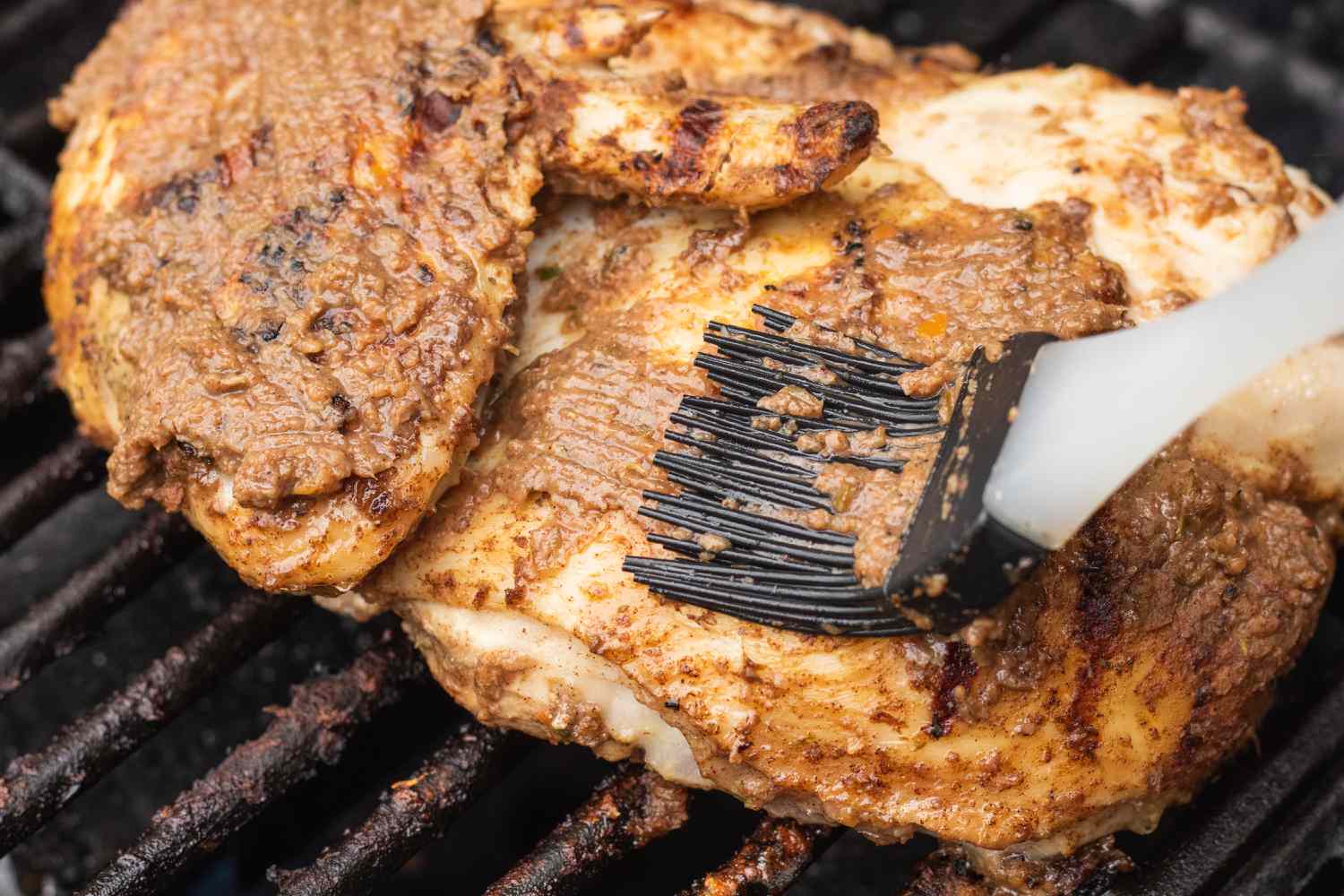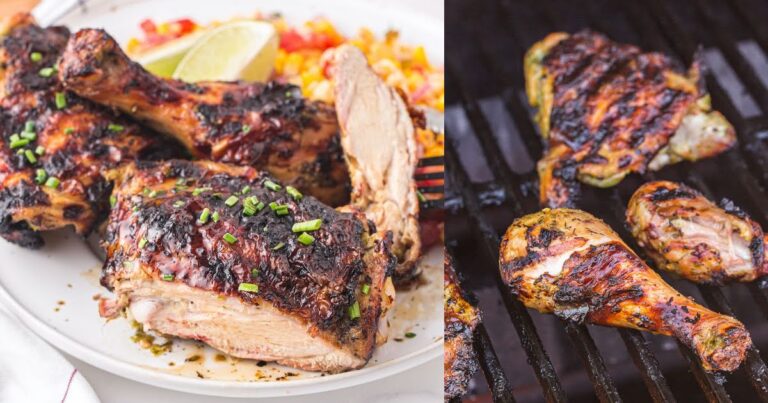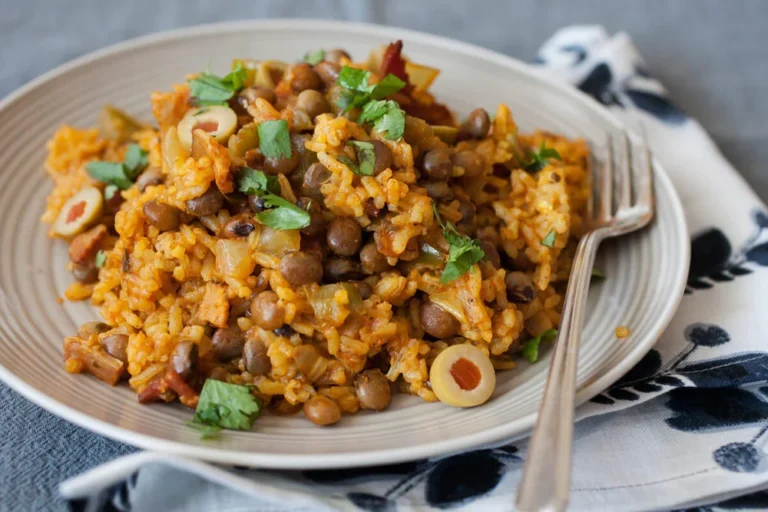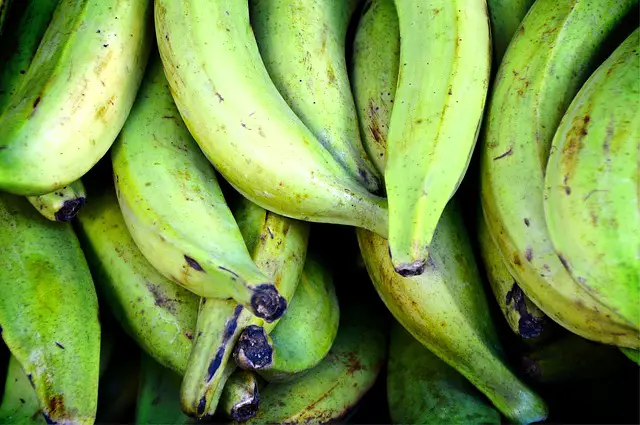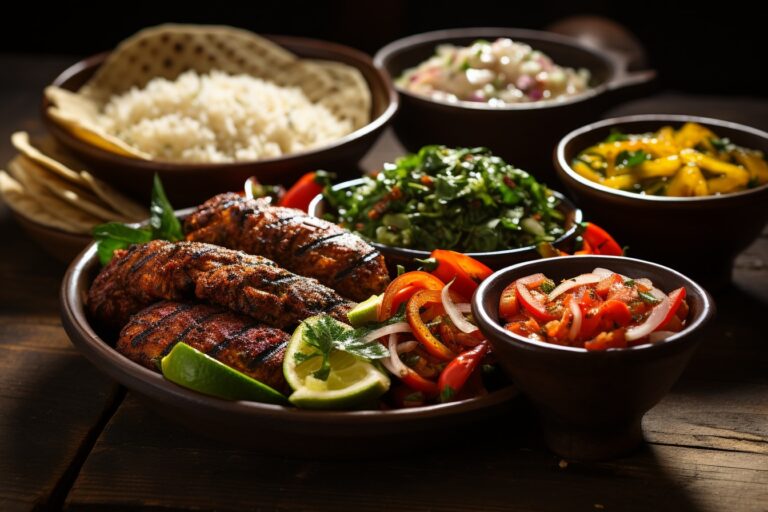Caribbean cuisine is renowned for its vibrant, bold flavors, and nothing embodies that more than the perfect marinade for Caribbean grilled meats. Whether you’re preparing juicy jerk chicken, tender pork, or flavorful seafood, a well-crafted Caribbean marinade can transform any cut of meat into a flavorful masterpiece.
In this guide, we’ll explore the essential ingredients that define these marinades—spices, herbs, acids, and sweeteners—and walk you through the steps to create your own. From the fiery heat of Scotch Bonnet peppers to the tangy zest of lime and the sweetness of brown sugar, you’ll learn how to balance flavors to suit different meats and grilling techniques.
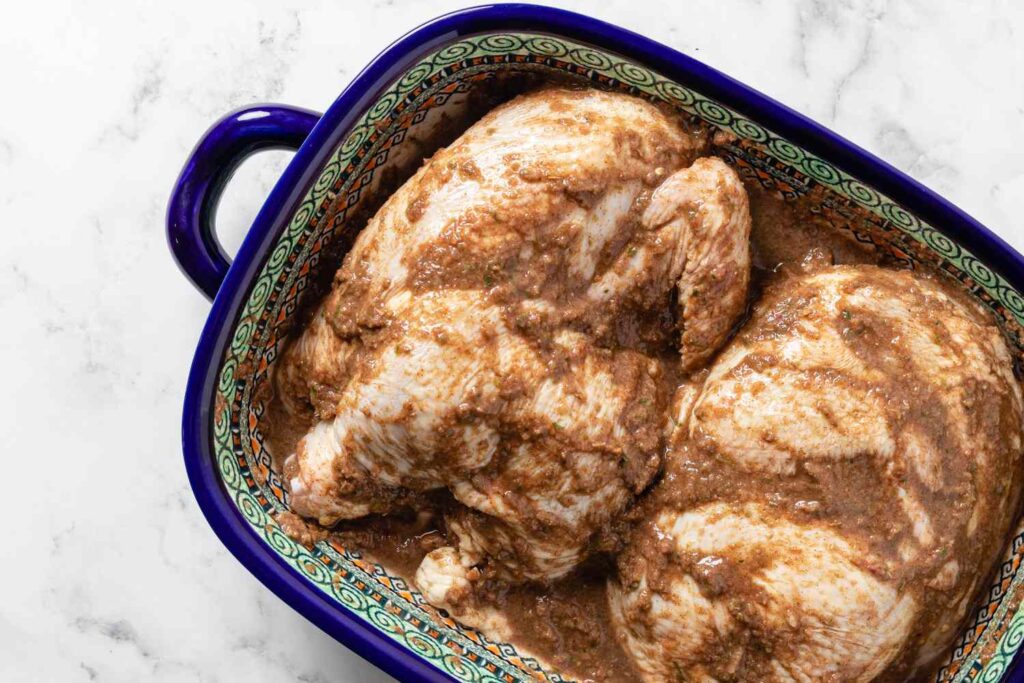
By the end, you’ll have everything you need to master Caribbean marinades, from classic recipes like jerk marinade to tropical variations, and understand the science behind marinating and grilling for juicy, flavorful results every time.
Understanding Caribbean Marinade Basics
Caribbean marinades are all about balancing bold flavors with fresh, vibrant ingredients. These marinades are known for their ability to enhance the natural taste of meats while adding depth and complexity to every bite.
The key to mastering a Caribbean marinade is understanding the core elements that define its flavor profile—spices, herbs, acids, and sweeteners. Each ingredient plays a crucial role in creating the perfect balance of heat, tang, and sweetness.
In this section, we will explore what makes a Caribbean marinade unique, the essential ingredients, and how to blend these flavors for a well-rounded marinade that works for a variety of meats.
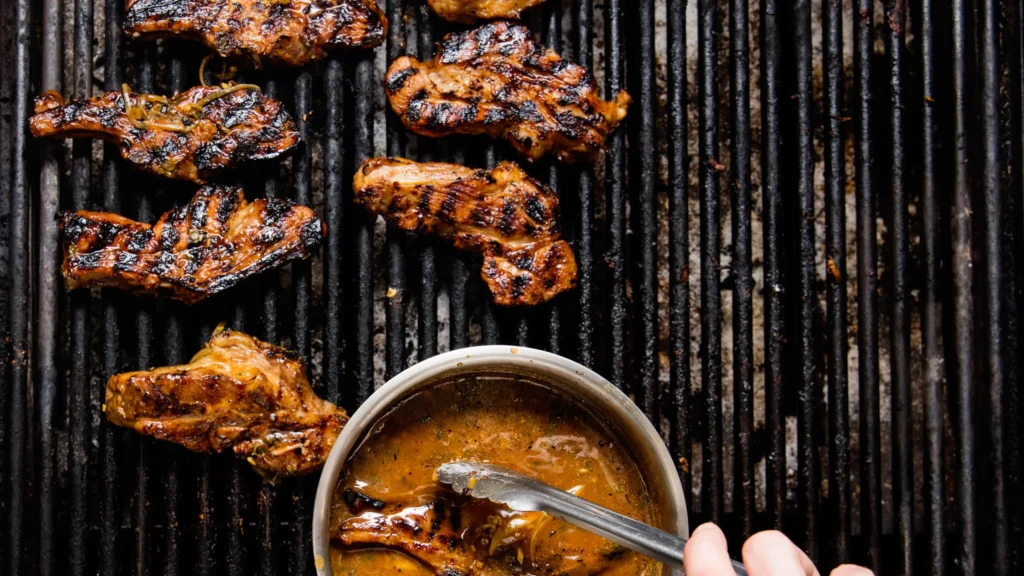
What Makes a Caribbean Marinade Unique?
Caribbean marinades stand out due to their bold, tropical flavors, which are a blend of the region’s diverse cultural influences. With roots in African, Indian, and European cuisines, these marinades offer a unique combination of spices, herbs, and fresh produce that work together to bring out the best in grilled meats.
What sets Caribbean marinades apart is the balance of heat, acidity, and sweetness. The use of vibrant herbs, fiery peppers, and natural sweeteners creates layers of flavor that complement various meats, making each bite a taste of the islands.
Spices That Define Caribbean Flavors (Allspice, Nutmeg, Cinnamon)
Spices are the heart of Caribbean cooking, and three key spices—allspice, nutmeg, and cinnamon—are what give many marinades their signature warmth.
- Allspice, often referred to as “Jamaica pepper,” brings a deep, earthy flavor with hints of clove and black pepper.
- Nutmeg adds a subtle, sweet warmth, often used to enhance the complexity of marinades for meats like pork and chicken.
- Cinnamon gives a touch of sweetness and warmth, often paired with spicy or tangy ingredients for a well-rounded flavor.
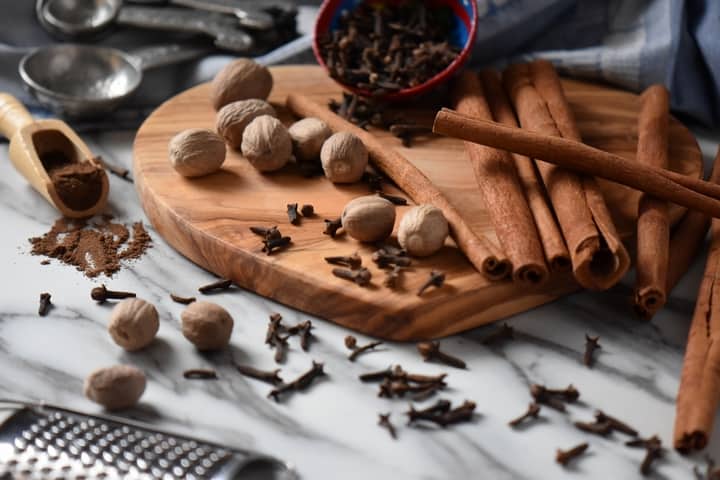
These spices combine to create the distinctively warm, rich, and aromatic base of many Caribbean marinades.
Traditional Herbs and Aromatics (Thyme, Scotch Bonnet, Garlic)
In addition to spices, herbs and aromatics play a vital role in Caribbean marinades.
- Thyme is a key herb, bringing a fresh, slightly minty flavor that complements both spicy and sweet elements. It’s used in almost every traditional marinade.
- Scotch Bonnet peppers provide the intense heat characteristic of Caribbean cuisine, but they also offer a fruity undertone that enhances the flavor complexity.
- Garlic adds depth and a savory kick, pairing well with the spices and balancing the overall flavor of the marinade.
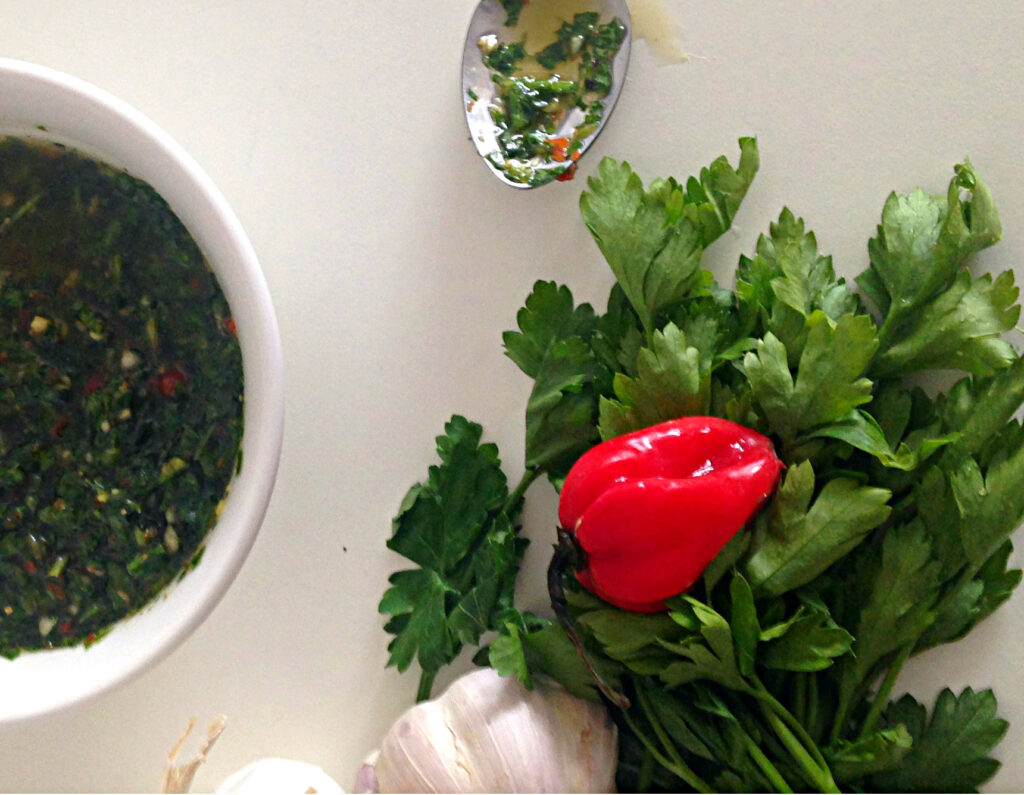
These herbs and aromatics help create marinades that are fragrant, flavorful, and packed with Caribbean zest.
Essential Ingredients for Caribbean Marinades
The success of a Caribbean marinade depends on using the right combination of essential ingredients. Each component plays a crucial role in developing the flavor profile—whether it’s adding acidity to tenderize the meat or sweetness to balance out the heat.
Caribbean marinades are all about creating harmony between tangy, spicy, and sweet elements, ensuring that each ingredient complements the other.
Choosing the Right Acid (Lime, Vinegar, Citrus Fruits)
Acids are a key part of any good marinade. They help break down proteins in the meat, making it more tender and allowing the flavors to penetrate deeply.
- Lime juice is the most common acidic component in Caribbean marinades, offering a sharp, citrusy tang that enhances the freshness of the dish.
- Vinegar, especially white or apple cider vinegar, adds a more robust acidity. It’s often used in combination with lime for an extra punch of tartness.
- Citrus fruits like oranges and lemons can also be used to introduce a milder, sweeter acidity that pairs well with seafood and poultry.
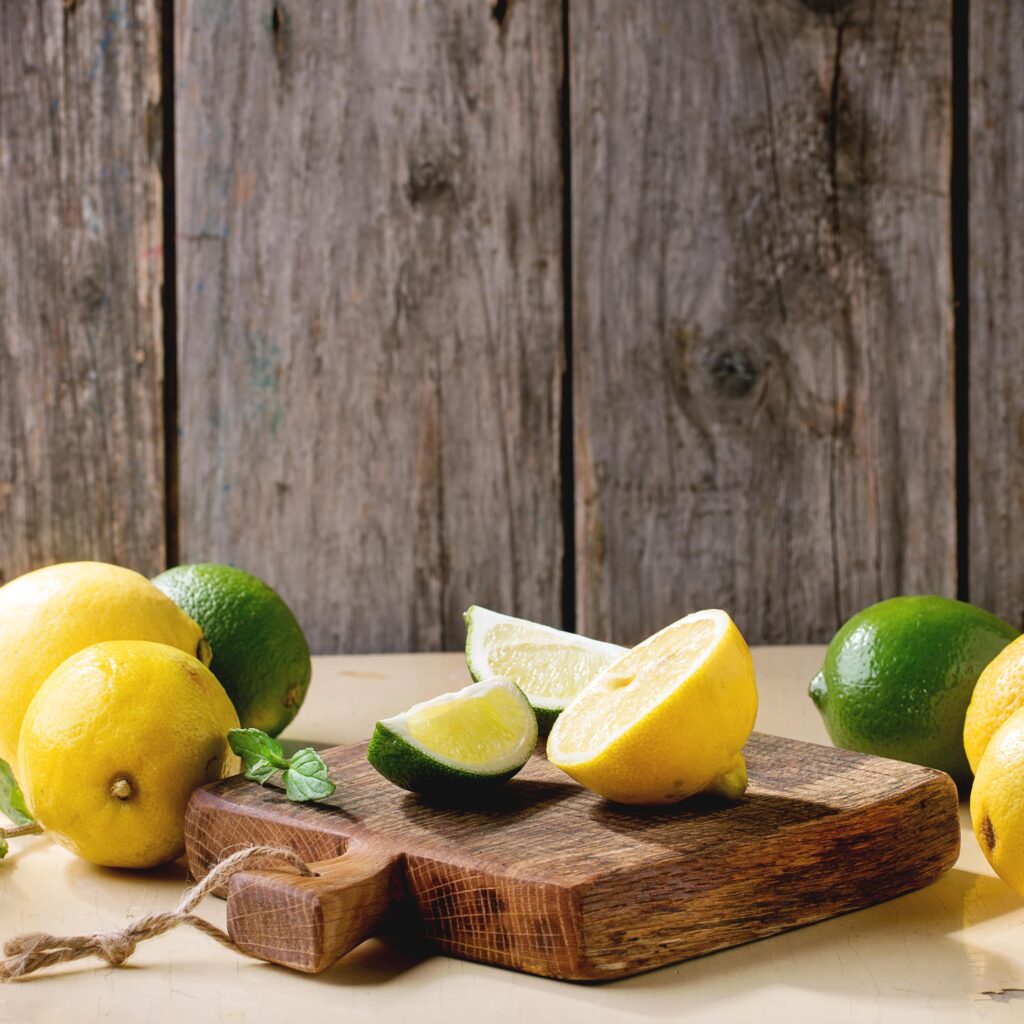
The right acid not only tenderizes the meat but also brightens the overall flavor, making it a key ingredient in balancing the boldness of the spices.
Sweeteners (Brown Sugar, Molasses) and Their Roles
Sweeteners in Caribbean marinades help to balance out the heat and acidity, while also contributing to the caramelization of the meat during grilling.
- Brown sugar is the go-to sweetener for its deep, molasses-like flavor, adding richness to the marinade. It pairs particularly well with pork and chicken.
- Molasses itself can be used for a deeper, smokier sweetness. Its thick texture helps the marinade cling to the meat, ensuring an even coating.
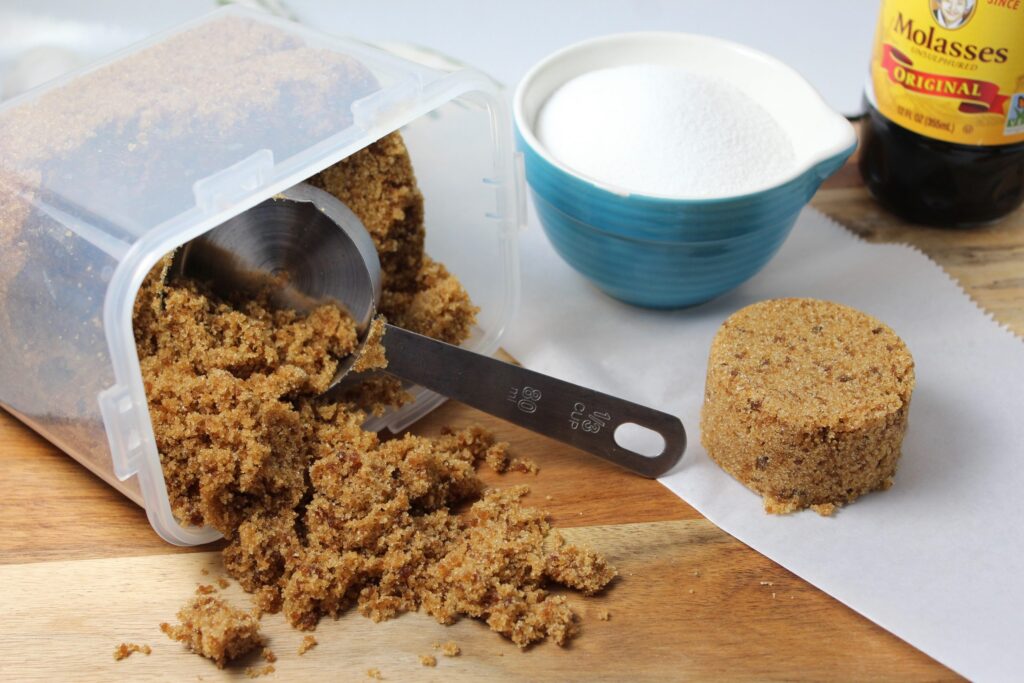
These sweeteners work to counterbalance the tartness of the acids and the heat of the peppers, creating a well-rounded flavor that’s essential to any Caribbean marinade.
Balance of Heat, Sweet, and Tang in a Marinade
Achieving the perfect balance of heat, sweetness, and tang is what sets a great Caribbean marinade apart. Each of these elements plays an essential role in creating a harmonious flavor profile. The key is understanding how to adjust each component to suit the type of meat you’re working with, while also catering to individual taste preferences.
By carefully balancing these flavors, you can create a marinade that is both flavorful and versatile, enhancing everything from chicken to seafood.
Adjusting Spices Based on Meat Type (Poultry, Beef, Pork, Seafood)
Each type of meat responds differently to the spices and flavors in a marinade, so it’s important to tailor the intensity and balance accordingly:
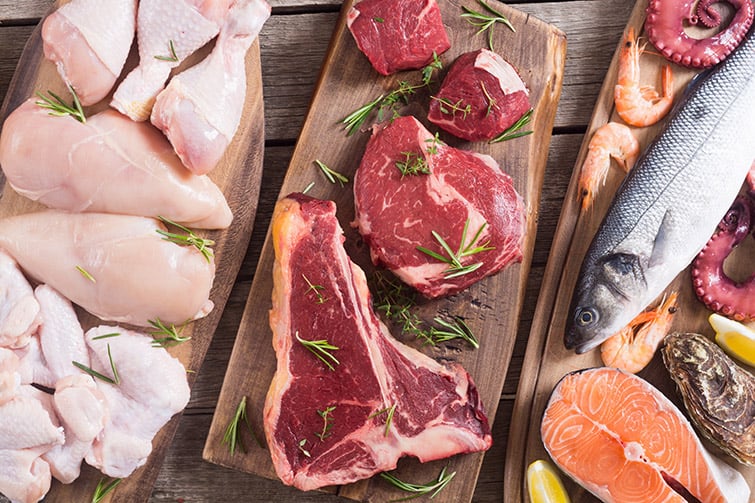
- Poultry: Chicken and turkey benefit from lighter, fresher marinades with more acidity and herbs. Spices like allspice and thyme pair well, while Scotch Bonnet peppers can be added for a mild kick.
- Beef: Beef requires a bolder approach. Use stronger acids like vinegar, and don’t shy away from intense flavors like nutmeg, cinnamon, and more aggressive use of peppers for heat.
- Pork: Pork can handle a sweet and tangy balance. Brown sugar and molasses work well to complement the richness of the meat, while a moderate use of heat brings everything together.
- Seafood: For seafood, it’s best to keep things light and fresh. Lime and citrus are ideal, and herbs like cilantro or thyme add a fresh, aromatic touch without overpowering the delicate flavors of the fish.
Step-by-Step Guide to Creating a Caribbean Marinade
Creating a Caribbean marinade is all about layering flavors to achieve the perfect balance. Whether you’re grilling poultry, beef, pork, or seafood, the key is choosing the right ingredients and allowing enough time for the marinade to work its magic.
This guide walks you through the essential steps of ingredient selection, mixing techniques, and marination times for different types of meats, ensuring that every dish is packed with authentic Caribbean flavor.
Choosing the Best Ingredients Based on Meat Type
Each type of meat demands a unique combination of ingredients to complement its natural flavor. Choosing the right ingredients based on the meat you’re working with ensures that the marinade enhances the dish rather than overpowering it.



Perfect Marinades for Poultry
Poultry, particularly chicken and turkey, benefits from light and tangy marinades.
- Use lime juice as your acid base, paired with herbs like thyme and cilantro.
- Add a bit of brown sugar for a touch of sweetness and balance it with Scotch Bonnet for a mild kick.
- Let the meat marinate for at least 2-4 hours, or overnight for a deeper flavor.
Best Marinades for Beef and Pork
For beef and pork, you’ll want a marinade that is bold enough to penetrate the dense texture of the meat.
- Vinegar works well as an acid base, helping to tenderize the meat.
- Use a combination of allspice, nutmeg, and cinnamon for a rich, warm flavor profile.
- Add molasses or brown sugar for sweetness, which caramelizes nicely on the grill. For pork, you can also use pineapple juice for a tangy, sweet twist.
- Marinate for 6-12 hours for best results.
Unique Combinations for Seafood
Seafood needs a more delicate touch when it comes to marinades.
- Use lime or lemon juice as the acid base, with a small amount of allspice for depth.
- Herbs like cilantro and ginger can add a fresh, aromatic element without overpowering the fish.
- Marinate seafood for 30 minutes to 2 hours depending on the thickness of the fillet.
Mixing the Marinade: Techniques for Flavor Integration
Properly mixing a marinade is essential to ensure that all the flavors are evenly distributed and can penetrate the meat effectively. The combination of wet and dry ingredients should be balanced to create a smooth and cohesive marinade. In this section, we’ll explore key techniques for integrating flavors, ensuring that your marinade coats the meat uniformly for maximum flavor absorption.
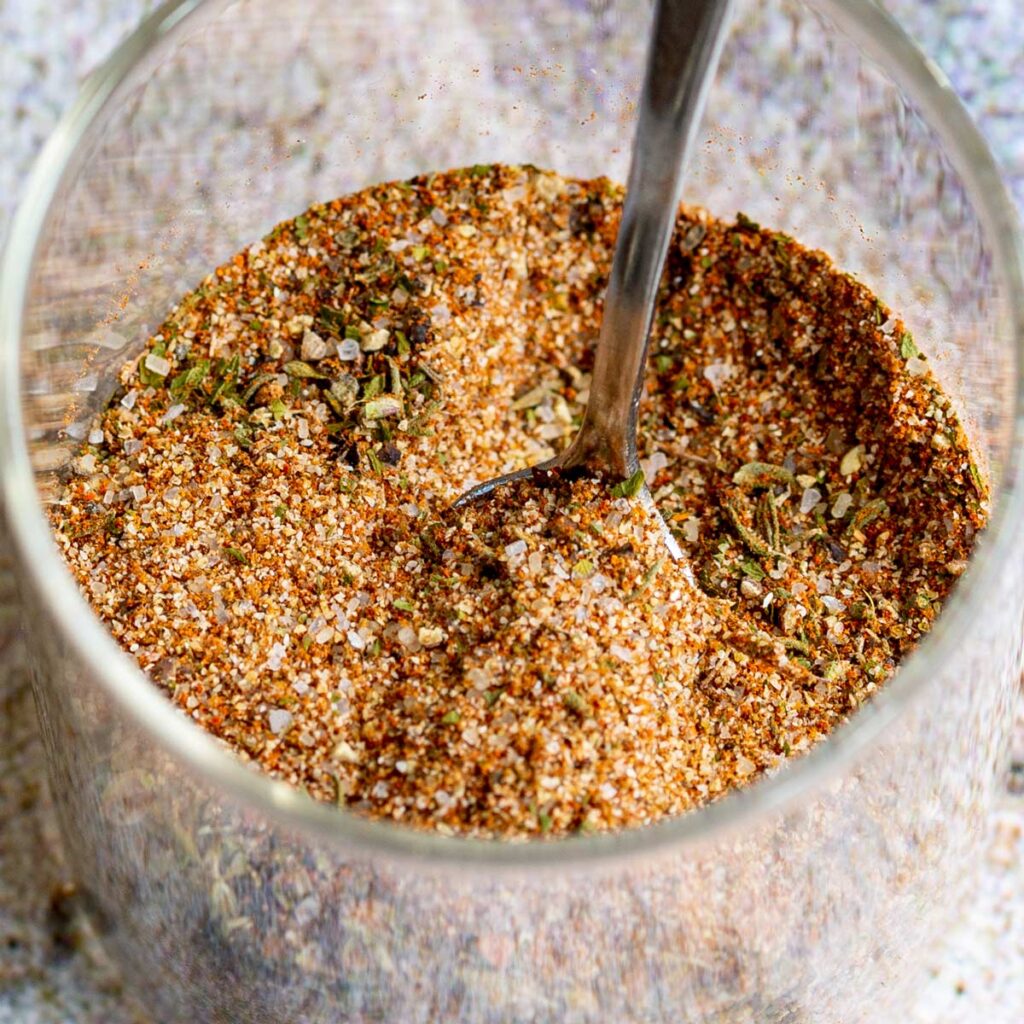
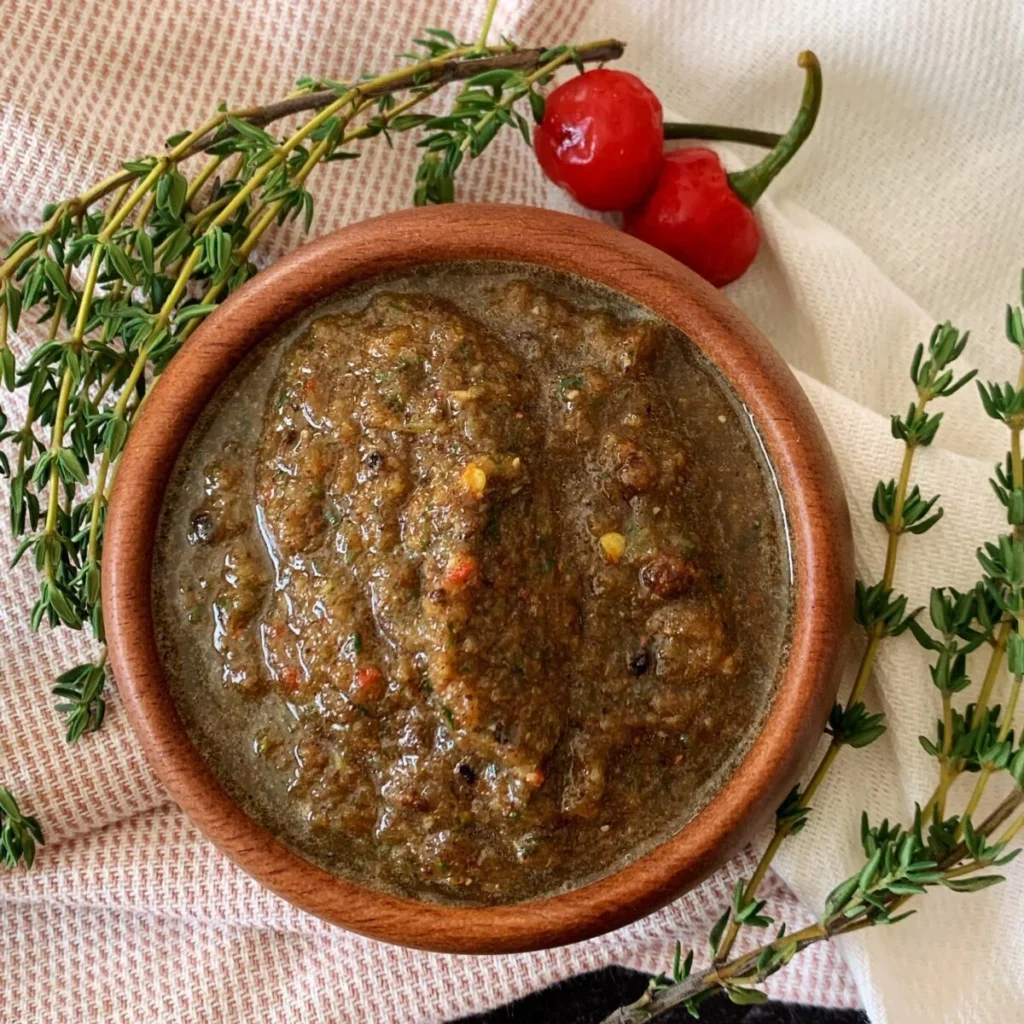
Combining Dry and Wet Ingredients: Tips and Tricks
To get the most out of your marinade, it’s important to blend the ingredients in a way that enhances their individual flavors:
- Start with the wet ingredients, like citrus juice, vinegar, or oils. These will serve as the base of your marinade and help to dissolve and distribute the dry ingredients.
- Gradually add your dry ingredients, such as allspice, nutmeg, and garlic powder, to ensure they’re evenly mixed. Whisking or blending the marinade will help avoid clumps and ensure a smooth consistency.
- If using sugar or molasses, make sure to dissolve it fully in the wet base to prevent uneven sweetness.
This method ensures that each piece of meat is evenly coated and that all the spices, acids, and sweeteners are working together harmoniously.
Marinating Times: How Long is Ideal for Each Type of Meat?
The marination time can make or break the flavor and tenderness of your meat. Each type of meat has an ideal marination time to absorb flavors without becoming over-saturated or mushy:

- Poultry: Marinate for 2-4 hours, or up to overnight for deeper flavor.
- Beef and Pork: These meats are more robust and can handle longer marinating times. Aim for 6-12 hours, and for thicker cuts, up to 24 hours.
- Seafood: Because of its delicate texture, seafood should be marinated for a shorter time, usually 30 minutes to 2 hours.
Marinating for the correct amount of time ensures that the meat absorbs the maximum flavor without losing its texture.
Top Caribbean Marinade Recipes for Grilled Meats
To bring out the authentic flavors of the Caribbean, here are some classic and creative marinade recipes that work perfectly for grilled meats. Each recipe is designed to highlight the balance of heat, sweetness, and acidity, giving your meats a vibrant and bold flavor.
Classic Jerk Marinade Recipe
The jerk marinade is a quintessential Caribbean flavor, known for its fiery heat and aromatic spices. It’s perfect for chicken, pork, or even beef, delivering a deep, smoky flavor with every bite.

Ingredients and Preparation
- Ingredients: Allspice, Scotch Bonnet peppers, thyme, garlic, ginger, cinnamon, brown sugar, soy sauce, lime juice, vinegar, and a pinch of nutmeg.
- Preparation: Blend all ingredients into a smooth paste. Make sure to taste and adjust the spice levels as needed. Coat the meat thoroughly with the marinade, then refrigerate for 4-12 hours, depending on the type of meat.
Adjusting Heat Levels for Different Preferences
- For a milder version, reduce the amount of Scotch Bonnet peppers or substitute them with a less spicy pepper like jalapeños.
- For extra heat, keep the seeds of the Scotch Bonnet peppers and add additional chili powder or cayenne to intensify the flavor.
This flexibility allows you to customize the jerk marinade to suit different spice tolerance levels without losing the bold, authentic Caribbean taste.
Tropical Lime and Ginger Marinade
This bright and zesty marinade is ideal for seafood and poultry. The combination of lime and ginger creates a refreshing flavor that pairs wonderfully with lighter meats.
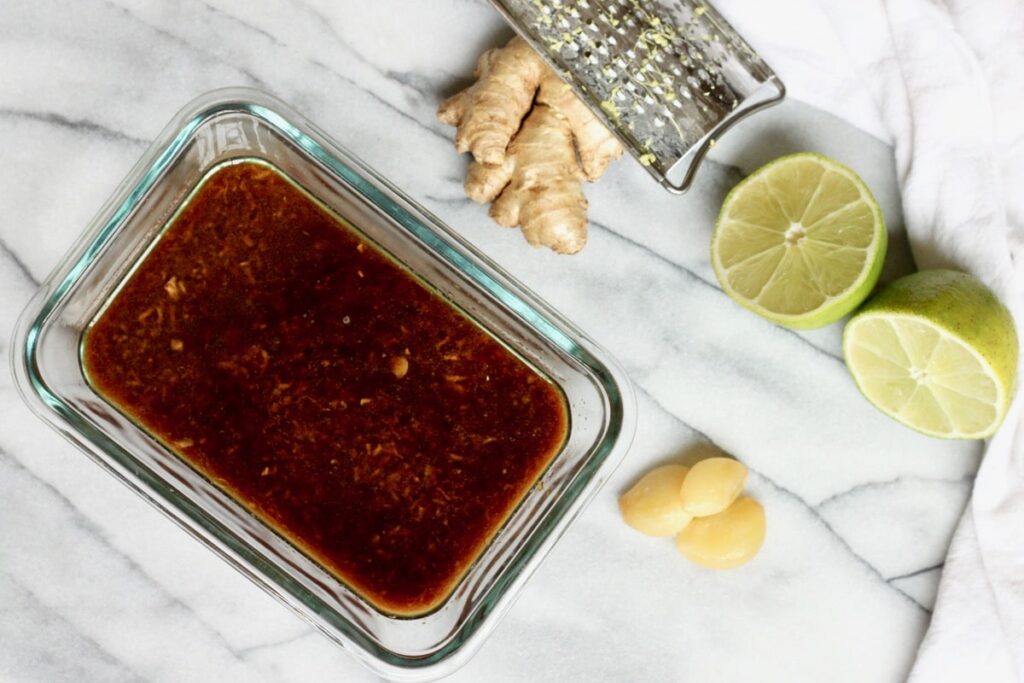
Best Used for: Seafood and Poultry
This marinade works best with delicate proteins like shrimp, fish, and chicken. The acidity of the lime tenderizes the meat, while the ginger adds a subtle, spicy warmth.
Flavor Variations: Adding Fruit Zests for Extra Zing
To enhance the tropical flavors, consider adding the zest of orange or lemon to the marinade. This will add a bright, citrusy note that elevates the dish. You can also toss in a splash of pineapple juice for an extra layer of sweetness.
Sweet and Spicy Pineapple Marinade
The sweet and spicy pineapple marinade brings together the fruity sweetness of pineapple with a spicy kick, making it perfect for meats like pork and chicken. This marinade not only adds bold flavors but also helps to tenderize the meat, creating a juicy and flavorful dish.
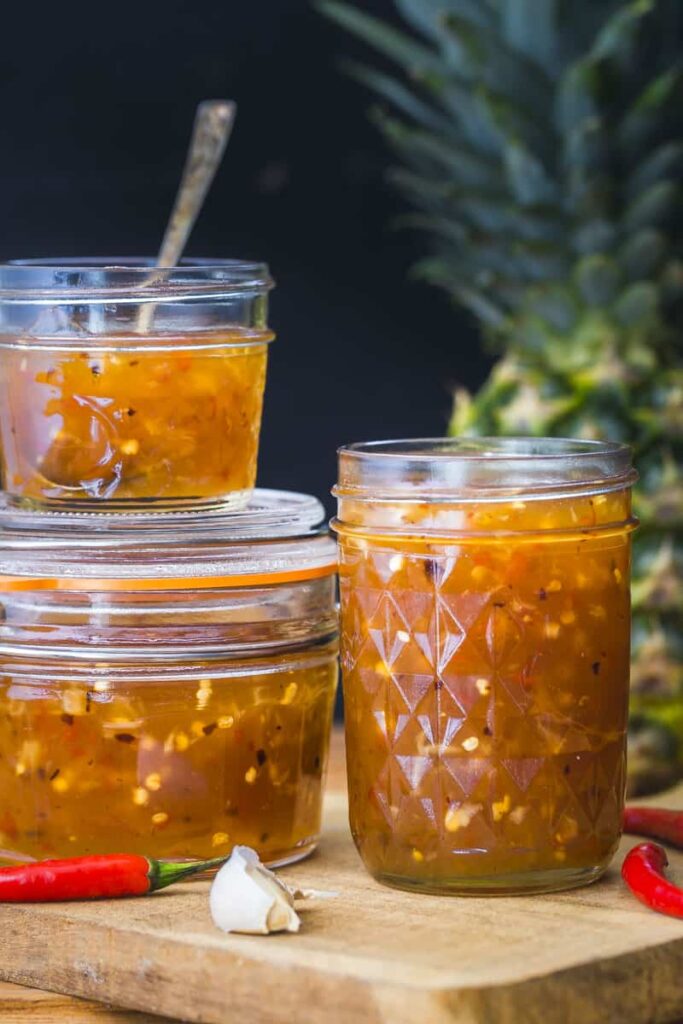
Best Used for: Pork and Chicken
Pork and chicken are the ideal meats for this marinade because they absorb the sweet, fruity flavors of pineapple while benefiting from the tenderizing effects of the acids in the fruit. The sweetness of the pineapple balances the heat of the spices, creating a well-rounded marinade that caramelizes beautifully on the grill.
How to Use Leftover Marinade as a Sauce
Once you’ve marinated your meat, you can repurpose the leftover marinade into a delicious sauce:
- Boil the marinade: To ensure food safety, bring the leftover marinade to a boil, which kills any bacteria from raw meat.
- Thicken if needed: You can reduce it on low heat to create a thicker, glaze-like consistency, or add a cornstarch slurry to turn it into a sauce.
- Serve as a side: Drizzle the sauce over your grilled meats or use it as a dipping sauce for extra flavor.
This not only reduces waste but also enhances the overall dish with an extra layer of flavor.
Techniques for Marinating and Grilling Caribbean Meats
Marinating is only half the process—grilling your meat to perfection is equally important. Understanding the science behind marination and mastering grilling techniques will help you bring out the best flavors in your Caribbean-inspired meats. This section will cover the key aspects of marinating and grilling, ensuring your meats are flavorful, juicy, and cooked to perfection.
The Science of Marination: How Does it Work?
Marinating works by allowing the acid, oil, and spices in the marinade to penetrate the meat. The acid (such as lime or vinegar) helps to break down tough proteins, making the meat more tender, while the oil helps carry the flavors deep into the meat. Spices and aromatics enhance the overall flavor by infusing the meat with their distinctive profiles.
Proper marination not only enhances flavor but also ensures a more tender and juicy texture when the meat is grilled.
Why Timing Matters: Over-marinating vs. Under-marinating
Timing is crucial when marinating meats. Over-marinating can cause the acid in the marinade to break down the proteins too much, leading to a mushy texture. Under-marinating, on the other hand, won’t allow enough time for the flavors to fully develop.
- Poultry: 2-4 hours, or up to overnight for more robust marinades.
- Beef and Pork: 6-12 hours for tougher cuts, or up to 24 hours for larger pieces.
- Seafood: 30 minutes to 2 hours to avoid overcooking the delicate flesh.
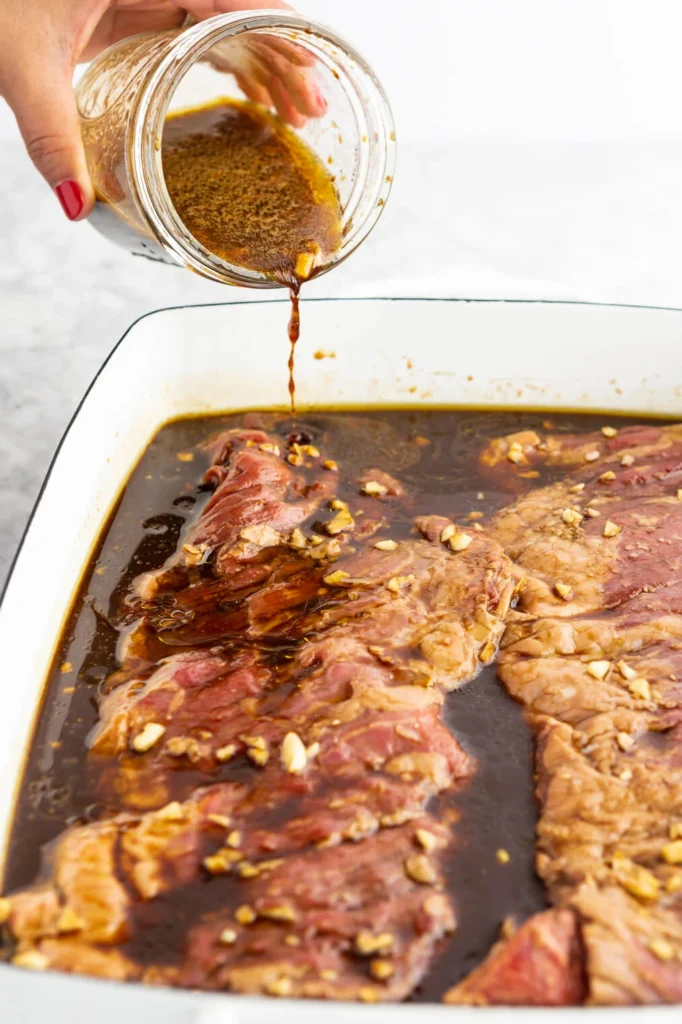
Penetration Depth: How Marinade Affects Different Cuts
The thickness and type of meat can affect how deeply the marinade penetrates. Thicker cuts like beef brisket or pork shoulder require more marination time, as the flavors take longer to reach the inner layers. For thinner cuts like chicken breasts or seafood fillets, shorter marination times are sufficient, as the marinade will absorb more quickly.
- Tip: For thicker cuts, score the surface of the meat lightly to allow the marinade to penetrate deeper.
Preparing the Meat for Marination
Before you start marinating, it’s important to prepare the meat properly. This ensures that the flavors from the marinade are absorbed evenly and the meat cooks to perfection on the grill.
Pre-Marinating Techniques: Tenderizing and Scoring
Tenderizing the meat helps the marinade work its way into the fibers, especially for tougher cuts of beef or pork. You can use a meat mallet to lightly pound the meat or score it with a knife to create small cuts that allow the marinade to penetrate more effectively.
For chicken, gently scoring the skin can help the flavors soak in without compromising the texture.
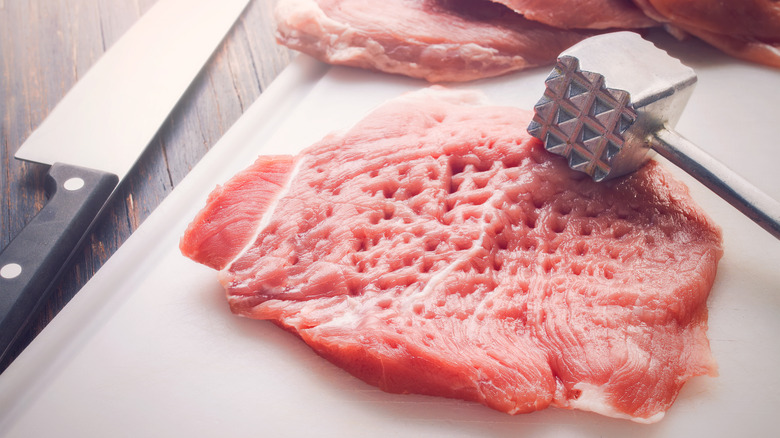
Using Marinade Injectors for Large Cuts
For larger cuts like pork shoulder or whole chickens, using a marinade injector can help distribute the flavors more evenly throughout the meat. Injecting the marinade directly into the thicker parts ensures that the inner layers are just as flavorful as the outer ones.
Simply fill the injector with your marinade and carefully insert it into different parts of the meat. This technique is particularly useful for thick cuts where surface marination might not be enough.
Grilling Techniques for Caribbean Marinated Meats
Grilling is the final step in the process, where the heat transforms the marinated meat into a tender, flavorful dish. Grilling techniques vary depending on the type of meat, and mastering these will help you achieve perfectly cooked, juicy results.

Direct vs. Indirect Heat for Different Meats
- Direct heat: Best for smaller, thinner cuts like chicken breasts or seafood fillets. Cooking over direct heat ensures a quick sear that locks in the marinade’s flavor while creating a delicious char.
- Indirect heat: Ideal for larger, thicker cuts like pork shoulder or beef brisket. Indirect grilling allows the meat to cook more slowly, ensuring even cooking without burning the outside.
Use a combination of both methods to create a perfect balance of tenderness and flavor, searing first and then finishing over indirect heat.
Controlling Grill Temperature for Juicy Results
Maintaining the right grill temperature is key to ensuring juicy, well-cooked meats. For Caribbean marinades, aim for a medium-high heat:

- For chicken and pork: 350°F to 400°F works well, providing enough heat to cook the meat through without drying it out.
- For seafood: Keep the heat slightly lower, around 325°F to 375°F, to avoid overcooking delicate fillets.
Monitoring the internal temperature of the meat with a thermometer will help ensure perfect doneness.
Common Mistakes to Avoid When Making Caribbean Marinades
Even with the best ingredients and techniques, there are a few common mistakes that can hinder the flavor and texture of your Caribbean marinades. By avoiding these pitfalls, you can ensure your grilled meats are always bursting with the right balance of flavors and perfectly tender.
Overpowering the Marinade with Too Many Spices
Caribbean marinades are known for their bold flavors, but using too many spices or overpowering ingredients can create an unbalanced dish. It’s important to find the right balance between spices, acids, and sweeteners to allow each flavor to shine.
How to Achieve the Right Balance of Flavors
- Tip: Start with a base of 2-3 spices (like allspice, nutmeg, or cinnamon) and build the flavor from there.
- Avoid overloading the marinade with too many competing flavors. Let the core spices and herbs like thyme or garlic be the stars.
- Gradually add heat with Scotch Bonnet peppers or other spicy elements, tasting as you go to avoid overwhelming the dish.
Keeping the flavor profile simple yet layered will make the marinade more versatile and suitable for different meats.
Not Accounting for Meat Thickness and Marination Time
One of the most common mistakes is not adjusting marination time based on the thickness of the meat. Over-marinating can lead to mushy textures, while under-marinating results in bland meat.
How to Adjust Marinade Recipes for Thick vs. Thin Cuts
- For thick cuts: Longer marination times are needed (6-12 hours for beef and pork), and it may help to score the meat or use an injector to get the marinade deeper into the meat.
- For thin cuts: Poultry and seafood need less marination time, usually between 30 minutes to 4 hours, depending on the intensity of the marinade.
By adjusting marination time and technique based on the type and thickness of the meat, you ensure the marinade enhances the flavor without compromising texture.
Pairing Caribbean Grilled Meats with Side Dishes
Pairing the right side dishes with Caribbean grilled meats enhances the overall dining experience by complementing the bold flavors of the marinade. Caribbean cuisine is known for its vibrant and flavorful sides, which balance the heat and spices of the grilled meats with freshness and variety.
Caribbean meals are known for their delicious sides that complement the bold flavors of marinated grilled meats. These sides add balance and variety to the meal, making each bite more enjoyable.



Rice and Peas: A Staple Dish
Rice and peas is a classic side that pairs well with jerk chicken, grilled pork, or beef. The combination of fluffy rice and creamy pigeon peas (or kidney beans), cooked in coconut milk with spices, creates a comforting contrast to spicy grilled meats.
Tip: Add thyme and scallions to the rice for authentic Caribbean flavor.
Grilled Plantains: Sweet and Savory
Grilled plantains bring a natural sweetness that balances the spice of grilled meats. You can grill them when slightly underripe for a firmer texture or when fully ripe for a sweeter taste.
Tip: Drizzle honey or sprinkle brown sugar on the plantains before grilling for extra sweetness.
Tropical Fruit Salads and Salsas
Fruit salads and salsas, made with tropical fruits like pineapple, mango, and citrus, add a refreshing contrast to the richness of Caribbean meats.
Pineapple Salsa
A simple salsa made with diced pineapple, red onion, cilantro, and lime juice pairs perfectly with grilled pork or chicken. The sweetness of the pineapple complements the savory meat, while the lime adds a tangy kick.
Tip: Add a chopped Scotch Bonnet pepper for a bit of heat.
Mango and Cucumber Salad
This light salad combines the sweetness of mango with the cool crunch of cucumber, making it a refreshing side for grilled meats.
Tip: Toss with a light lime and olive oil vinaigrette to bring the flavors together.
This simpler version keeps it straightforward while retaining the key elements. Let me know if you’d like further adjustments!
Frequently Asked Questions
Disclosure: Our blog contains affiliate links to products. We may receive a commission for purchases made through these links. However, this does not impact our reviews and comparisons. We try our best to keep things fair and balanced, in order to help you make the best choice for you.

